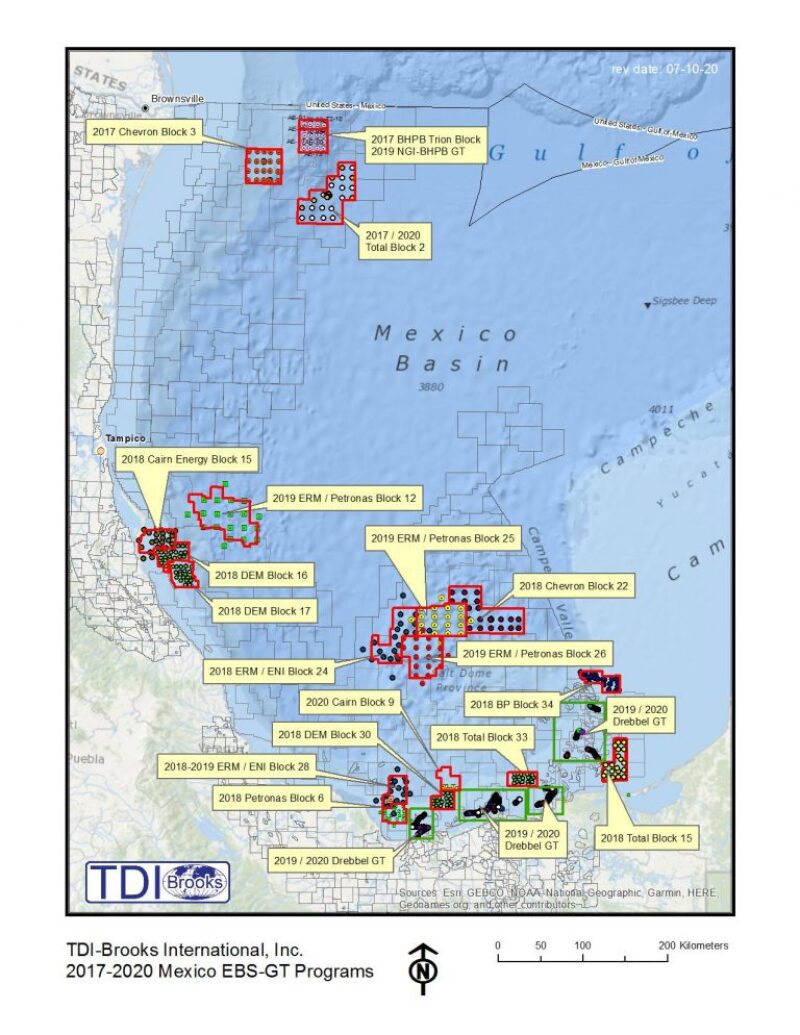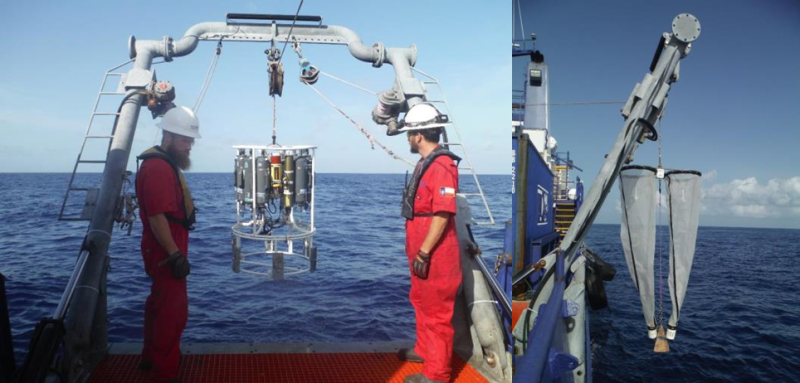TDI-Brooks completed two environmental post-operations surveys (EPOS) projects in Mexico for Total in Block 2 in the Perdido Basin and for Capricorn Energy Mexico (Cairn) in Block 9 of the Sureste Basin.
The Block 2 EPOS program was in deep water (about 3300 m) offshore northern Mexico, while the Cairn project was a shallow-water project. These were the first EPOS programs completed in this COVID work environment.

In order to minimize risk and avoid local quarantines at Mexican ports, the service company mobilized one of its four multiuse oceanographic research vessels, R/V EMMA McCALL, from Texas to conduct the program on a 25-day cruise leg with short, restricted port calls in Tampico, Mexico.
The cruise acquired more than45 sediment and more than 22 conductivity, temperature, and depth (CTD)-water stations in these blocks. Sediment sampling involved box core (BC) acquisition which included photographic documentation of the seafloor at each site with a benthic camera attached to the BC. The box core sediments were subsampled for macroinfauna, meiofauna, sediment chemistry, and redox profiles.
At each sediment site for the deepwater study, sediment profile imaging and planar photography was also conducted.
At selected water column sites CTD/water/rosette casts were acquired. On the deepwater program, plankton nets were also deployed and lowered ADCP [acoustic doppler current profiler] measurements were acquired to measure current profiles.
In the past 3 years, TDI-Brooks has acquired 19 EBS or EPOS programs in Mexico for eight major oil and gas firms. It focuses on the planning, acquisition, post-drilling, and analytical components of these environmental baseline studies (EBS)/EPOS projects required by Mexico’s National Agency for Safety, Energy, and Environment. Maxon Consulting provides the regulatory and interpretative reporting components.
Environmental baseline studies are often required in offshore prospects as a defense against potential litigation, to satisfy leasing stipulations, and as good faith measures in responsible environmental stewardship.

